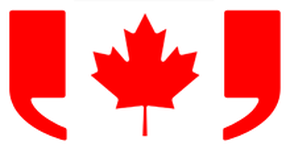
1. Quotations
a. “It’s period/ quote and not quote/ period. “
Look in newspapers and you will always see."
b. Capitalize the first word in a quotation when it forms a complete thought.
Example:
"No matter what you say," he said. ""I will go."
2. Punctuation
a. Understand how to use commas, semi colons, colons and especially apostrophes. Review singular and plurals and possessives.
3. Titles
a. Do not use Mr./Ms. in first or subsequent reference.
4. Spell proper names as they are
a. Bar Harbour, Maine, not Bar Harbour
b. Lincoln Center, New York City, not Lincoln Centre
c. U.S. Secretary of Labor, not Labour
d. Don’t mix Canadian and U.S. spelling in one sentence: one wouldn't say U.S. Defence Secretary met with Canadian Minister of Defense…in this instance, CP style would predominate
e. Also spell common names per the individual’s preference—yes, it ’s k.d. lang and ee cummings and Kim Campbell, not Kimberly
5. Avoid caps where possible
a. Capitalize all proper names, trade names, government departments and agencies, names of associations, clubs, religions, languages, nations, races, places and addresses.
b. For example: white and black are colours, not races; Caucasian and African-Canadian are correct. (This may not be politically correct).
c. Medical references enjoy persistent capitals: Fallopian tube, Achilles tendon
d. Be careful with newspaper names: it ’s the New York Times, the Toronto Star, no initial capitalization
e. Former titles are generally not capitalized: the late governor general Roméo Leblanc, not former Gov. Gen etc.
6. Numbers and figures
a. Check figures very carefully. One decimal point can be disastrous
b. Percentages can throw off copy and be misleading—increases from one number to another may be prefer red. “Sales increased from $100 to $150, or 50 per cent. (Percent is two words).
7. Sports
a. Familiar league names are abbreviated in first reference. NHL or CFL, not National Hockey League (NHL)
b. City names are singular while team names are plural. The Toronto Maple Leafs play in Air Canada Centre, while Toronto “plays” in Air Canada, etc.
c. The series is singular: The Stanley Cup final, not finals
8. Front Loading
a. “The Minister of External Affairs said today in a news conference that he was adding six new consular officials in Iraq” is ghastly.
Correct way is: "Six new consular officials will be added in Iraq, the Minister of External Affairs said today."
b. Bring the news out first.
9. Time
a. Try to make it fall naturally – as it would in speech
b. In the above example, imagine this:
i. The Minister today said
ii. The Minister said today
10. That and Which
a. That is used when the clause is “essential to the noun it defines.” “The movie that played at Square One.”
b. Which clauses give a reason or add a new element and are over used. If it can be set off by a comma, it probably requires “which.”The Hangover, which just opened at the Yorkdale Cinema…
11. Who and Whom
a. Whom is becoming archaic in spoken language and is t rending that way in written speech;when it can’t be avoided, use it correctly
b. Separate sentence to check which is which
i. Who can be replaced by he, she and they
ii. Whom favour s him, her and them
iii. Who is a subject;Whom is an object (to whom)
12. Abbreviations
a. When in doubt, spell it out. Notable acronyms are permissible—GST but not provinces: it ’s B.C., not BC
c. In first reference, use U.S., not U.S.A or USA
13. Everyday words
a. About, not approximately
b. Met, not held a meeting
c. Instructor or teacher , not resource person
14. Canadian Spelling – is also fading away but not entirelya. Programme, tyre and gynaecologist are out but manoeuvre and cheque are in
b. “our”words ar e in: labour, favour and honour etc. Believe it or not , until 1998 “labor”was CP style but the population –and schools – taught ‘our.’
c. Double “ll” is also CP style: counsellor, travelled
d. It’s now criticize and rationalize—one exception is analyse
15. Over vs. More than
a. They are equivalent
16. Commas
a. Not after the final “and” in a series

 RSS Feed
RSS Feed